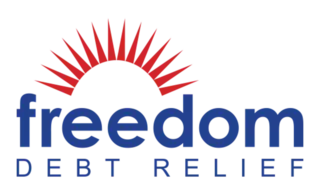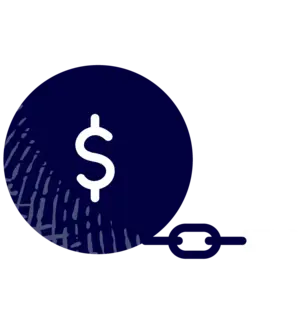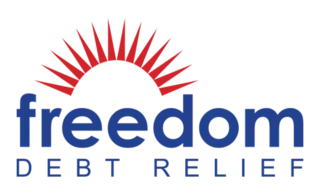Trying to Get Out of Debt? Here Are 6 Tips to Pay It off Faster
Climbing out of debt is a perennial New Year's resolution for many Americans — and it’s easy to see why. Nearly 7 in 10 people reported feeling “financial stress” in a recent survey, with about a quarter of them naming credit card debt as a particular concern.
The pain of monthly debt payments is especially acute in today’s environment: Consumer borrowing is soaring, and even after the Federal Reserve approved three consecutive rate cuts in 2025, interest rates on many types of debt remain high, making bills harder to afford.
That means making a plan to get out of debt will be at the top of millions’ to-do lists this year. Paying off debt often requires a slow, steady approach. Fortunately, there are strategies you can use to accelerate your payoff timeline. Here are six ways to get out of debt faster.
1. Pay more than the minimum payment every month
One of the best ways to pay off credit card debt (and other debts) faster is to pay more than you have to each month — even if you can only afford a small amount more.
Minimum payments on revolving debt, such as credit cards, typically cover only a tiny fraction of the principal amount, allowing interest to accumulate rapidly. Making larger payments, which puts more toward the principal, means less interest will be tacked onto your loan balance each month.
For example, say you have a $6,500 credit card balance with a 23.99% annual percentage rate (APR) and a $146 minimum payment. It'll take you more than nine years to pay off that card making only the minimum payments. However, if you can put an extra $100 each month toward your balance, you'll have it paid off in just over three years. You’ll also save nearly $7,000 in interest.
You can pay more than the minimum on all loan types, but be sure you understand how those extra payments are applied, particularly with installment loans like your mortgage, auto or student loans. With these, you may have to ask your lender to use the extra money to reduce the principal balance instead of counting it as a credit toward your next payment. Know that some loans, including mortgages and auto loans, can have prepayment penalties. While most lenders don't penalize you for extra payments or early payoff, it’s always smart to review your loan terms before prepaying so you’re not hit with a surprise fee.
2. Set up a payment plan
Rather than throwing extra money at your debts randomly, you’ll be more effective if you take the time to map out a payment plan. You’ll save more money — and potentially pay off your debts faster — using what’s called the debt avalanche method. (More on that below.) But it’s most important for you to design a payment plan you’ll stick with. If you need some quick wins to stay motivated, then you should feel free to focus on your smaller debts first.
Regardless of which method you pick, the general process looks the same:
- List out your loans and credit cards, including their balances, APRs and minimum payments, in a spreadsheet.
- Prioritize your debts, ordering them from either high to low interest or from lowest balance to highest.
- Total up all your minimum payments to see how much you have to dedicate to debt each month.
- Then check your budget to see how much extra money you have after covering all your necessities (including your minimum debt payments). This will help you determine how much extra you can reallocate to the loan you’re targeting first.
- Create a debt payoff plan that outlines how much you expect to pay every month. You can also search online for a debt avalanche or debt snowball calculator that calculates your payoff plan. Some calculators can help you create a spreadsheet that will make it easier to track your progress.
3. Tackle high-interest debts first
Two popular (and frequently debated) debt repayment strategies are the debt snowball and the debt avalanche. The latter method prioritizes eliminating more expensive debt first.
Specifically, you pay off debts in order of interest rate, starting with the debt with the highest rate. You'll pay the minimum on every other debt and direct any extra money to the loan you’re targeting. Once that loan is paid off, you move your focus to the next-highest rate.
With this strategy, you’ll always pay the least interest.
In contrast, the debt snowball method focuses on paying off debts from the smallest to largest balance. This may be the best strategy if you need to see faster progress to get motivated, since you’ll knock off smaller balances first and leave the bigger ones that will take longer until later. But because your other debts are sometimes accruing expensive interest, it isn't the cheapest way to get debt free.
4. Adjust your budget and limit unnecessary spending
The more money you can put toward your highest-interest debt each month, the quicker you'll get out of debt. The hard part, of course, is finding that extra money.
Begin by reviewing your budget and current expenses. Cutting back on unnecessary spending, also called discretionary spending, should be your first focus. Most of these items are obvious — think: eating out, concert tickets, video games or nail appointments — even if they are painful to eliminate.
If you’ve already cut as much as you can from this bucket, you should also review your necessary spending. While most of these items do not have much flexibility, you may be able to find areas to trim. For example, adjusting your thermostat by a few degrees, planning meals around grocery sales or shopping for more affordable auto insurance. Even a 5% to 10% reduction in essential bills frees up extra cash to pay down debt.
The key here is to be strict enough with yourself that you can identify some real areas to cut back, but not to be so austere that you can’t maintain your budget for the duration of your debt payoff.
Finally, plan on any additional money you may receive going toward debt. Whether it's an annual tax refund or a bonus at work, earmark it to use for debt repayment.
5. Consider consolidating your debts
It may sound counterintuitive, but sometimes taking out a new loan can help you pay off debts faster. This is the philosophy behind debt consolidation.
When you take out a debt consolidation loan, the idea is to swap high-interest debt with lower-interest debt. There are a few ways you can do this, but the most common ones are taking out a personal loan or using a home equity loan or home equity line of credit. Because the latter uses your home as collateral, interest rates tend to be lower than those offered on personal loans. But both products offer starting APRs that are far below credit card rates, meaning there’s a lot of potential to pay back your debt for less.
Note that you’ll usually need a decent credit score and history of on-time payments to get a good rate on the new loan, so you may need to spend some time paying down your debts (using the other steps in this guide) and improving your credit before you can take this step.
6. Keep your debt out of collections
If you fall several months behind on loan payments, your account will be delinquent and your debt may go to collections. If you think your debt is unaffordable now, it only gets worse when it goes to debt collectors.
Late fees and interest charges will add to your debts. You could get hit with collection agency fees and legal costs if your creditor passes your debt on to a collection agency or decides to pursue legal action against you. You could also face wage garnishment, where your creditor takes your payment directly from your paycheck. Finally, your credit score will also take a significant hit, making it harder to obtain another line of credit for several years.
If you’re struggling with your debts but still current, contact your lenders immediately. Although many don’t broadcast the specifics of these programs, banks and other lenders will sometimes offer short-term payment pauses or reduced payments to help you get back on track.
If you’re already fallen behind, it may be time to consider outside help. You could look into credit counseling for help building a budget and making payment plans. Another option is to hire a company to negotiate your debts, where they’ll settle with creditors on your behalf in exchange for a fee. Be sure you understand this process fully: The best debt relief companies will clearly state their fees and give you a thorough explanation of what to expect, including possible savings.
The benefits of paying off debt fast
Sticking to a tight budget for an extended time isn't easy. Keeping your eye on the prize — a debt-free future — can help you stay motivated and working toward your payoff goal.
When you feel like extending your debt payoff date or indulging in discretionary expenses rather than putting the money toward your debt, remind yourself of these benefits.
You'll pay less in interest
If there is a secret to how to get credit card debt relief faster, it's putting as much money as you can toward your debt principal. On an accelerated debt repayment schedule, you put a much bigger dent in your loan principal each month and accrue far less interest. That translates to significant savings.
Again, consider that $6,500 credit card balance with the 23.99% APR and $146 monthly minimum payment. If you make only the minimum payment each month, you'll pay more than $9,800 in interest to pay off the card. By putting about $250 per month toward that principal balance, you'll pay just over $2,800 in interest.
It can help you gain access to more credit opportunities
The faster you pay down your debt, the quicker your debt-to-income ratio will improve, and your credit score could increase. Your debt-to-income ratio compares how much money you owe for debt repayment each month to how much you earn.
The healthier your debt-to-income ratio, the more credit opportunities you may have available to you. Not only will you possibly qualify for better interest rates in the future, but you also may qualify for a wider variety of loans and larger loans, making it easier to reach financial goals like buying a home or a car.
It can improve your quality of life
About two-thirds of adults in America rate money issues as a significant stressor in their life, according to the American Psychological Association. Being debt-free won’t eliminate all your financial stressors, but it can certainly help when you have some breathing room.
Here’s a bonus tip to fundamentally shift your stress levels around money: As you work on your debt payoff plan, try to put a little extra money aside each month to build up an emergency savings fund so that you don’t have to borrow for unexpected expenses down the road.
Once you finally pay off your loans, you can stop wasting your hard-earned cash on paying interest to creditors and instead spend your money in ways that earn you interest. You can start by putting said cash in a high-yield savings account or investing for your retirement.
More from Money:
5 Things People Get Wrong About Debt Relief




